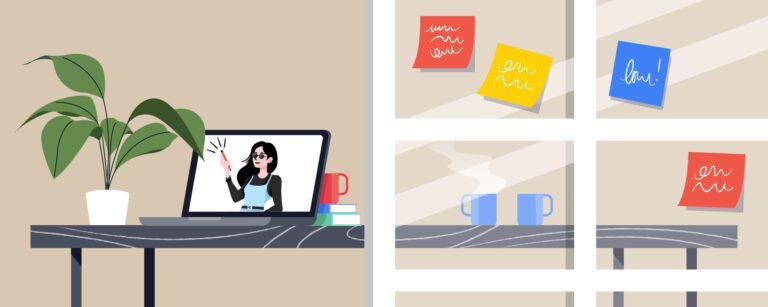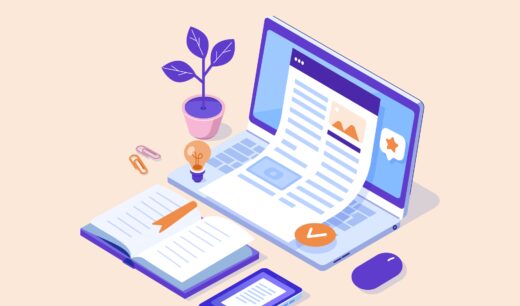Top 5 questions you can expect in a web design workshop
5.5 min read

There’s not a single, full-scale web project that goes through the Abstrakt studio that doesn’t begin with a discovery workshop.
They’re a critical element of the process and project plan and offer more insight into a business than any brief ever could.
Everything comes ‘from the horse's mouth’, and as you’re the best authority for your business, we extract a lot of information in one workshop with questions we’ve developed over the years to get the best out of every business and its core team of stakeholders.
Our discovery workshops are designed to understand your business very quickly yet thoroughly. Key questions promote our clients' consideration and paint a clear picture before we step into the initial planning phases, such as personas and customer journey maps.
We’ve singled out our top 5 questions that we couldn’t run a workshop without to give us the backbone of information that initiates a web design project's following stages.
What is the business's current situation, and why do they feel there is a need for a new website?
The internal thirst for a website project is essential and must come from all stakeholders. If there’s an Achilles heel (a stakeholder who doesn’t want change), it often hinders the entire process, and the root of this is usually due to assumptions made by individuals.
For instance, speculation about audience behaviour, user journey, or even connection with the brand. Sometimes discovery workshops and asking why businesses believe they need a new website can spark more internal discussion. With a team of web experts to guide the conversation, it proposes unexpected questions that lead to resolution and all stakeholder buy-in (mostly!)
What’s more, understanding a business’s current situation allows us to gauge where the business and marketing could be going wrong and where the website is not working hard enough to generate conversion.
How will success be measured?
Every business has a means of measuring its success; not every business’s success looks the same. At Abstrakt, as part of our manifesto, as well as the beliefs of the team, we consider ourselves to be a results-driven agency, and we work with our clients to set targets to achieve this. Part of that understands how a client wishes to measure the success of a new website based on their business goals, objectives and KPIs.
Those goals are considered throughout the process and play a large role in the initial planning, ensuring that user journeys are designed around the audience's needs and the business’s objectives and end goal for each persona. This success feeds into the development, too—and how tools such as Google Analytics are prepared for key goals and events.
Who are you talking to / who is your audience?
The audience is why we create websites for businesses, to direct them to a central space that speaks to their needs and goals. Understanding audiences in more detail allows us to get to grips with why (and how) audiences interact with your business. A broad audience may need consideration for primary, secondary and tertiary audiences, all with unique needs and user journeys.
Extracting audience information from a business allows us to create digital personas, which create a detailed profile of an audience type. This reflects on their situation/background, motivations, goals, frustrations, the technology they use and digital channels, all of which will lead to an informed user journey and a clear call to action strategy throughout the site—ensuring that the website is audience-led and user-centric.
Who will be producing the content and supplying assets?
We’re advocates of a content-first approach at Abstrakt, which also benefits our clients, designers and audiences. Assets can often make or break a website. If the photography isn’t up to scratch, if the illustrations and iconography are too generic or if copywriting is long and stagnated, it all adds to websites not converting as they should.
We must understand who is doing what from the offset and if we need to engage other team members, such as copywriters and illustrators, to get the project off to the best start. This all supports project plans and timescales. If new photography is needed, it must be considered within the overall deadline and where it fits. Once the planning stages are complete (after personas, user journeys and component planning), a copywriter will need to work through core pages ready to go into design.
Who has the final sign-off?
This is one of our discovery workshops' last but most important questions. Whilst everyone in the room may be involved in the project, it’s important to know who has sight of the work and who signs it off in the end. If more individuals need to be looped in, that’s not a problem, but issues arise when projects are faced with ‘hidden stakeholders’ who weren’t involved in the early stages of a project.
That means they may have missed conversations and reasoning behind particular choices, and due to their review and feedback, it can often put a pause in projects or even end in scope creep and more costs. That’s why we encourage everyone who needs to be involved from the beginning.
They’re the top five web design questions asked in a website workshop. There’s a whole section dedicated to design inspiration. Still, when it comes down to it, the more important information we need to progress is to do with the current situation and the audiences of a business.
Alongside those questions, if you’re interested in kickstarting a project for a new website, we’ve delved into more details on what’s involved with our initial workshops to give you a better understanding of what to expect when engaging in a project with Abstrakt. And don’t worry, we always send our clients a little ‘homework’ to get them thinking before we sit down. Just like being back at school, eh?
Want to start a new project with a results-driven agency that puts user experience at the forefront of its planning and design?

Nikki Taylor
Nikki leads our digital projects to guarantee exceptional quality at every step of project delivery with a background in UX design.
She has specialist knowledge in project management and digital design.
Connect on LinkedIn.
Why a content-first approach is better for web design
4 min read

Why discovery workshops kickstart projects in style
7 min read
